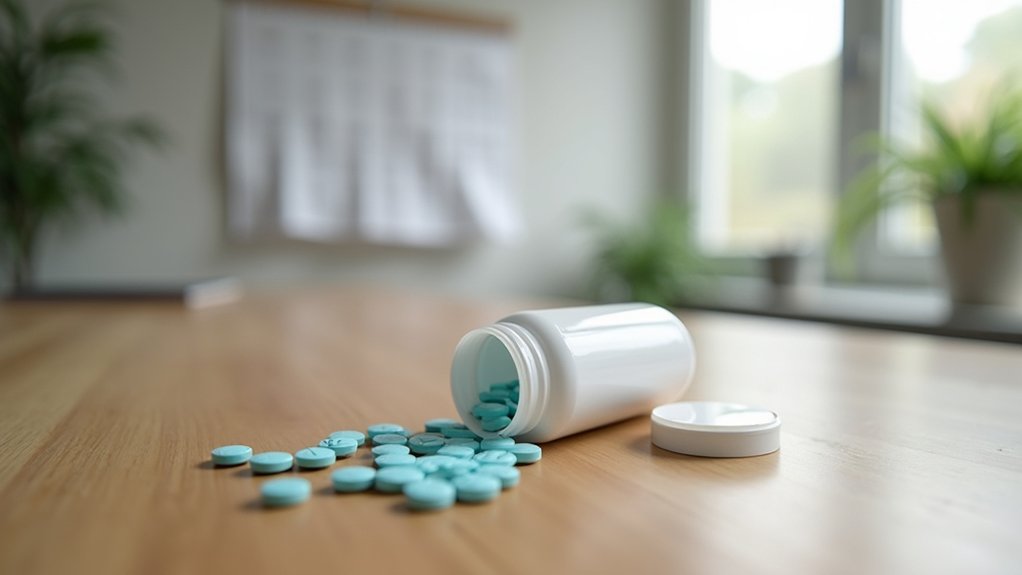Can Alcohol Cause Alzheimer’s Disease?
Recent studies solidify a likely correlation between Alzheimer’s and alcohol consumption, especially when done in excess. Therefore, the short answer is yes, excessive alcohol use can lead to Alzheimer’s and other memory illnesses. In honor of memory loss and Alzheimer’s Disease Awareness Month, it’s important to notice the link between Alzheimer’s and alcohol. Consequently, understanding how Alzheimer’s and alcohol coincide is likely to add more motivation to expunge it from your life completely.
It’s important to understand brain science and the effects of alcohol on your long-term health. At Immersive Recovery in San Diego, California we explore the question can alcohol cause Alzheimer’s?
What are the Symptoms of Alzheimer’s Disease?
Though Alzheimer’s symptoms can disguise themselves as innocent mental mistakes early on, there are several indicators of the disease. The problem is these indicators go overlooked, depriving the sufferer of the medical help they need for far too long. Therefore, seek medical diagnosis if you notice any of the following Alzheimer’s symptoms.
Repeating Yourself
Anyone repeating stories or questions they’ve already told could be a sign of Alzheimer’s disease. When this occurs, it will appear and feel as if they are telling the story or asking the question for the first time. This is because they undoubtedly do not know how to share or ask the question before. We all repeat ourselves on the occasion. However, when it becomes a monthly, daily, or even every few hours occurrence, it may be time to seek a diagnosis.
Losing Personal Belongings
It is common to lose track of things from time to time. Yet, losing items one wouldn’t normally lose, especially more frequently, is a potential red flag for possible memory-related illnesses. Examples include misplacing or losing a wallet, keys, clothing, or other personal belongings. Take note of this symptom if it is otherwise out of character, especially on a repetitive basis.
Forgetting How To Do Routine Tasks
An individual with Alzheimer’s will eventually forget how to do tasks they have performed daily. This includes work, pleasure, or home-related tasks alike. This may result in the individual needing help with simple duties on the job or even at home. If it is Alzheimer’s, this means the disease is nearing the end of the early phases of the disease.
Mood Swings
Mood changes are common among the elderly. However, drastic mood shifts of any age are a cause for concern. Alzheimer’s-related mood swings will occur suddenly without warning, and in response to minor infractions or for no apparent cause. This can also be due to the person’s frustration of having the inability to remember things. Instead of meeting mood swings with anger, it’s important to respond sympathetically to what may be a memory-related illness.
Money Problems
This doesn’t mean a person with early Alzheimer’s necessarily struggles to make ends meet. Rather, it is a debilitating ability to manage funds properly. This may be having trouble counting, managing, or forgetting to pay bills. This sudden mismanagement of funds may not be a character issue at all, so don’t assume so. Reach out to medical representatives near you to properly pinpoint the underlying cause of their sudden money problems.
How Does Alcohol Cause Alzheimer’s Disease?
So how does alcohol contribute to Alzheimer’s? While it may not directly cause the disease, its trickle-down effects on your neuronic functions undoubtedly play a part. Bearing that in mind, here are a few ways excessive alcohol consumption can cause Alzheimer’s.
Adolescent Binge-Drinking Links to Elder Memory Loss
Excess adolescent drinking is a known contributor to memory loss disorders later in life. That’s because the human brain under the age of twenty-five still has underdeveloped portions. Consequently, binge drinking hinders the developmental processes of children, teens, and young adults. These mental hindrances, though not immediately present, can have long-term consequences on your memory health.
Alcohol Deprives the Brain of Necessary Nutrients
Your brain needs the proper nutrients to maintain a healthy balance. Drinking in excess starves and even drains your neurons of these very nutrients. Over time this persistent drink-induced deprivation can have long-term effects on memory, eventually leading to Alzheimer’s. You can restore the nutrients your mind needs to sustain a long and healthy life simply by removing alcohol from your life.
Brain Damage
Frequent sessions of binge drinking can cause permanent brain damage. Studies indicate that enough alcohol over time affects the brain’s ability to repair damage caused by alcohol. This is the case for both young and older adults, though even more debilitating for underdeveloped minds. Reverse the brain damage caused by alcohol by enrolling in one of our treatment programs. You can begin your path to mental restoration by reaching out to Immersive Recovery today.
Alcohol Use Depletes Your Mental Memory Bank
Ever notice binge drinking often causes memory gaps of what occurred while under the influence, including inhibitory impacts. This is commonly referred to as “blacking out”. Yet, it further confirms the direct correlation between memory loss, Alzheimer’s, and alcohol abuse. The truth is, that these short-term “blackouts” could become a permanent problem on the progressive path to developing Alzheimer’s.
Metabolic Decline in Conjunction with Excessive Alcohol Consumption
As you age, your liver’s ability to process alcohol declines. This means alcohol remains in your body longer, providing a greater opportunity to do further damage, especially if consumption persists. Couple this with a quicker and greater onset of effects as you age and you have a ticking time bomb on long-term memory health. If you haven’t been diagnosed with liver problems, it’s not too late to reverse the damage done to your body.
Declining Cognitive Functions
Alzheimer’s disease affects the cognitive portion of your brain, resulting in poor motor skills and reaction time. This includes the parts of the brain responsible for depth perception and timing. An individual with early-onset Alzheimer’s will suddenly pose a danger to themselves and others on the road. Non-coincidentally, Alzheimer’s and alcohol have similar effects on cognitive functions, alcohol in the short-term and Alzheimer’s in the long-term. This is just one of the numerous ways studies confirm the mutual progression of persistent alcohol use leading to Alzheimer’s later in life. Stopping alcohol use in its tracks prevents further damage to your brain and central nervous system.
How Can Immersive Recovery Help Treat Alcohol Addiction

While there’s no cure for Alzheimer’s disease, you can severely diminish your risk of acquiring memory ailments through alcohol rehab. Thankfully, there are a wide range of treatment options to restore your mental and physiological strength. Consult a professional treatment receptionist to learn more about the following addiction treatment methods.
Individualized Addiction Treatment
Immersive Recovery has the most advanced tools and physicians to help you achieve self-sustainable sobriety. Therapists achieve this by getting to the heart of addiction by identifying the mental and behavioral triggers of your struggle. This personalizes your treatment so doctors can map the most effective recovery path for your individual needs. We believe getting to know you and the depth of your addiction in your own words is the only way long-term sobriety is possible.
Family Therapy
When one person struggles with alcohol addiction, the whole family is affected in some capacity. That’s why the whole clan must heal through the rehab process together. Family therapy can not only help the patient resolve their addiction struggles. Treatment specialists can also help the family come together through these difficult times mentally and emotionally. In family therapy sessions, doctors can strengthen your friendly and family bonds in a way you never thought possible. All this while putting the needs and recovery of the addicted party first.
Partial Hospitalization Program
Partial Hospitalization programs, or PHP, are offered to those who require heavy monitoring and accountability. Our state-of-the-art PHP treatment ensures you have both the professional and family support structure you need to achieve sobriety. These programs, like all of our treatment processes, are done at your pace to accomplish full self-sustainable sobriety. You’ll have peace of mind knowing you’re not being rushed or forced through a system. Sobriety is done your way at your pace with the compassionate support of loved ones and our team of treatment specialists.
Intensive Outpatient Treatment
Intensive Outpatient Programs offer the patient an opportunity to go about their daily life, activities, and work responsibilities. This means the patient can live at home without attending an in-person facility. Sessions are conducted at the patient’s home or a mutually designated public area. Despite the looser restrictions, this treatment method does not minimize your accessibility to doctors or treatment. You’ll have full-time access to our compassionate team and the choice of increasing or minimizing treatment frequency at your discretion.
Immerse Yourself in Life-Changing Treatment at Immersive Recovery
The only thing standing in your way of achieving your sobriety dreams is a single phone call to our treatment assessment receptionists. You’ll feel immediate relief the moment you speak to our sympathetic experts. Let us guide you to a specialist who’ll help you stop alcohol and any potentially acquired conditions before it’s too late. Stop Alzheimer’s and alcohol harm in their tracks by reaching out to Immersive Recovery now.





